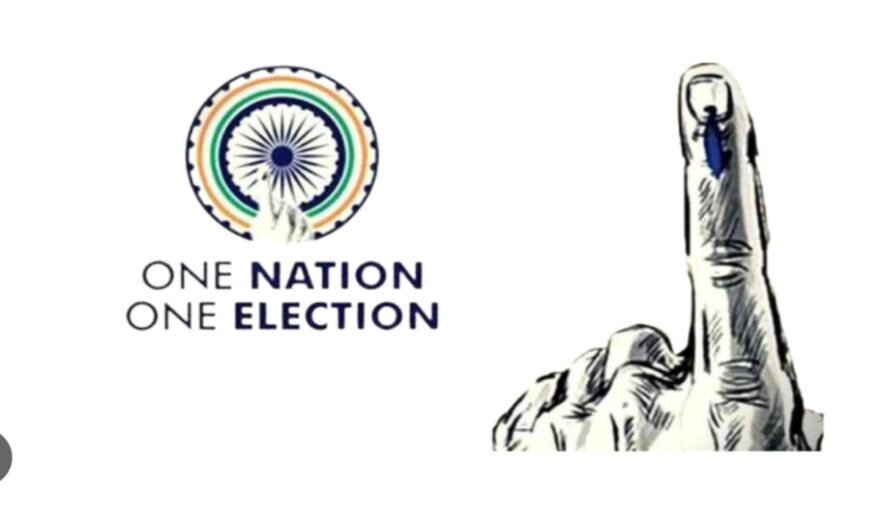
Justice (retd) Ritu Raj Awasthi, Chairperson of the Law Commission, outlined a comprehensive plan for simultaneous elections in the presence of the high-level ‘One Nation, One Election’ committee, headed by former President Ram Nath Kovind.
Sources familiar to “The Daily Guardian” told, ‘The Law Commission of India has undertaken a comprehensive plan for the implementation of simultaneous elections for the Lok Sabha and state assemblies, beginning in 2029.’
The Commission is actively exploring strategies to harmonize all assembly elections and establish a unified electoral roll with the aim of reducing costs and streamlining manpower.
The committee responsible for the ‘one nation, one election’ initiative, chaired by former President Ram Nath Kovind, has extended an invitation to political parties to provide their input on the feasibility of conducting simultaneous elections.
During a meeting on Wednesday , Justice (retd) Ritu Raj Awasthi, the Chairperson of the Law Commission, presented a detailed roadmap for executing concurrent elections in the country before the high-level committee on ‘one nation, one election,’ led by former President Ram Nath Kovind.
Sources familiar with the meeting have revealed that the law panel engaged in extensive discussions regarding the necessary constitutional amendments to facilitate simultaneous elections.
However, it was noted that there are still pending tasks before the law panel can submit its report to the government regarding simultaneous elections.
There is a possibility that the Kovind panel may call upon the Law Commission for further discussions in the future.
The Law Commission was invited by the committee to provide its insights on the logistics of conducting simultaneous elections in the country.
The committee, following its initial meeting where it decided to seek the opinions of political parties, has now reached out to these parties to gather their perspectives on the viability of concurrent elections in the country.
In correspondence with political parties, the committee has proposed an interactive session on a “mutually agreed date,” allowing parties the option to provide their opinions in writing over the next three months.
The Law Commission is currently devising a formula to align all assembly elections, whether by extending or reducing their tenure, in order to hold these elections alongside the Lok Sabha polls starting in 2029.
The commission is actively working on a mechanism to establish a unified electoral roll that would encompass Lok Sabha, state assemblies, and local bodies, with the aim of reducing costs and the workforce required for what is presently a nearly identical process carried out by the Election Commission and various state election commissions.
To ensure the synchronization of various assembly elections and the simultaneous conduct of state and Lok Sabha elections from 2029 onwards, the commission may propose adjustments to the tenure of legislative assemblies.
Efforts are also being made to guarantee that once Lok Sabha and assembly elections are synchronized, voters would need to visit the polling booth only once to cast their ballots for both elections.
It’s worth noting that since assembly and parliamentary elections are currently held in different phases, the commission is actively working on modalities to ensure that voters are not required to visit polling stations multiple times to participate in both elections.
The commission believes that holding assembly and parliamentary elections concurrently is feasible and is focused on devising the necessary mechanisms for the smooth execution of this significant democratic process.




